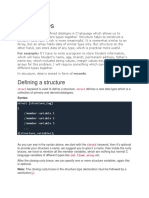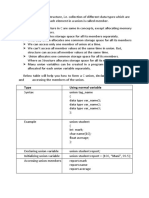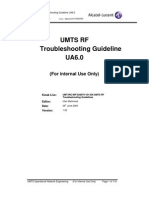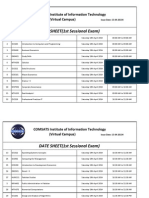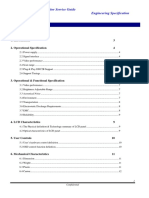0% found this document useful (0 votes)
34 views29 pagesModule - 5
Module 5 by Priti K. Zanje covers the fundamentals of computer memory, pointers, structures, unions, and arrays of strings in C programming. It explains how memory is organized, how to declare and use pointers, and how to create and access structures and unions. Additionally, it discusses the declaration and initialization of arrays of strings, providing examples for clarity.
Uploaded by
girishshetty271Copyright
© © All Rights Reserved
We take content rights seriously. If you suspect this is your content, claim it here.
Available Formats
Download as PPTX, PDF, TXT or read online on Scribd
0% found this document useful (0 votes)
34 views29 pagesModule - 5
Module 5 by Priti K. Zanje covers the fundamentals of computer memory, pointers, structures, unions, and arrays of strings in C programming. It explains how memory is organized, how to declare and use pointers, and how to create and access structures and unions. Additionally, it discusses the declaration and initialization of arrays of strings, providing examples for clarity.
Uploaded by
girishshetty271Copyright
© © All Rights Reserved
We take content rights seriously. If you suspect this is your content, claim it here.
Available Formats
Download as PPTX, PDF, TXT or read online on Scribd
/ 29




























